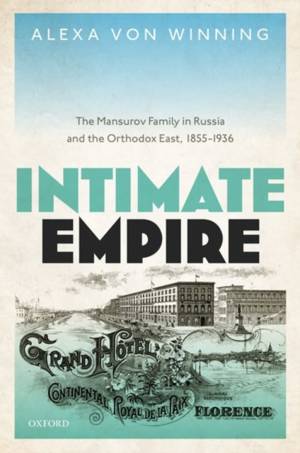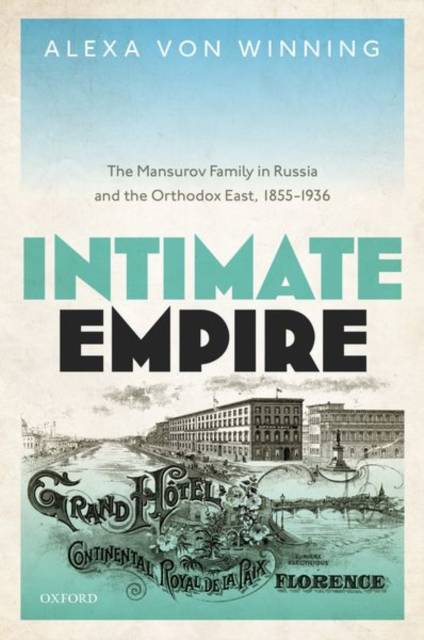
- Afhalen na 1 uur in een winkel met voorraad
- Gratis thuislevering in België vanaf € 30
- Ruim aanbod met 7 miljoen producten
- Afhalen na 1 uur in een winkel met voorraad
- Gratis thuislevering in België vanaf € 30
- Ruim aanbod met 7 miljoen producten
Zoeken
€ 177,45
+ 354 punten
Omschrijving
After a humiliating defeat in the Crimean War, the Russian Empire struggled to reassert its position as a global power. A small noble family returned from the siege of Sevastopol and joined the rulers' efforts to advance Russian standing in the decades until 1917. Intimate Empire tells the story of the Mansurovs, who were known to nineteenth-century observers as resourceful imperial agents and staunch supporters of Orthodoxy. In close interplay with scholarship and the media, they built churches and pilgrim hostels to increase Russian dominance within its borders and in the Ottoman Empire. Some of the family's achievements stand to this day: the Russian complex in Jerusalem and an impressive Orthodox Convent in Riga. When the Revolution came, they faced stigmatization as former nobles, believers, and monarchists. Impoverishment and arrests became part of their daily lives in Soviet Russia. Intimate Empire is a study of the momentous role played by elite families in Russia's international involvement in the age of empire. It shows how three generations of a mobile noble family advanced the intertwined causes of the Russian Empire and Orthodoxy, using family resources and tools of intimacy. Women were crucial for the family's efforts, both behind the scenes and in public. It is the first monograph to examine the interplay between family and empire building in Russian history-a topic that has proven extraordinarily prolific for British imperial history yet remains virtually unexplored for the Russian case. Russia, Orthodoxy, and noble family life emerge as part of the European trans-imperial scene.
Specificaties
Betrokkenen
- Auteur(s):
- Uitgeverij:
Inhoud
- Aantal bladzijden:
- 240
- Taal:
- Engels
- Reeks:
Eigenschappen
- Productcode (EAN):
- 9780192844415
- Verschijningsdatum:
- 29/07/2022
- Uitvoering:
- Hardcover
- Formaat:
- Genaaid
- Afmetingen:
- 163 mm x 238 mm
- Gewicht:
- 503 g

Alleen bij Standaard Boekhandel
+ 354 punten op je klantenkaart van Standaard Boekhandel
Beoordelingen
We publiceren alleen reviews die voldoen aan de voorwaarden voor reviews. Bekijk onze voorwaarden voor reviews.











